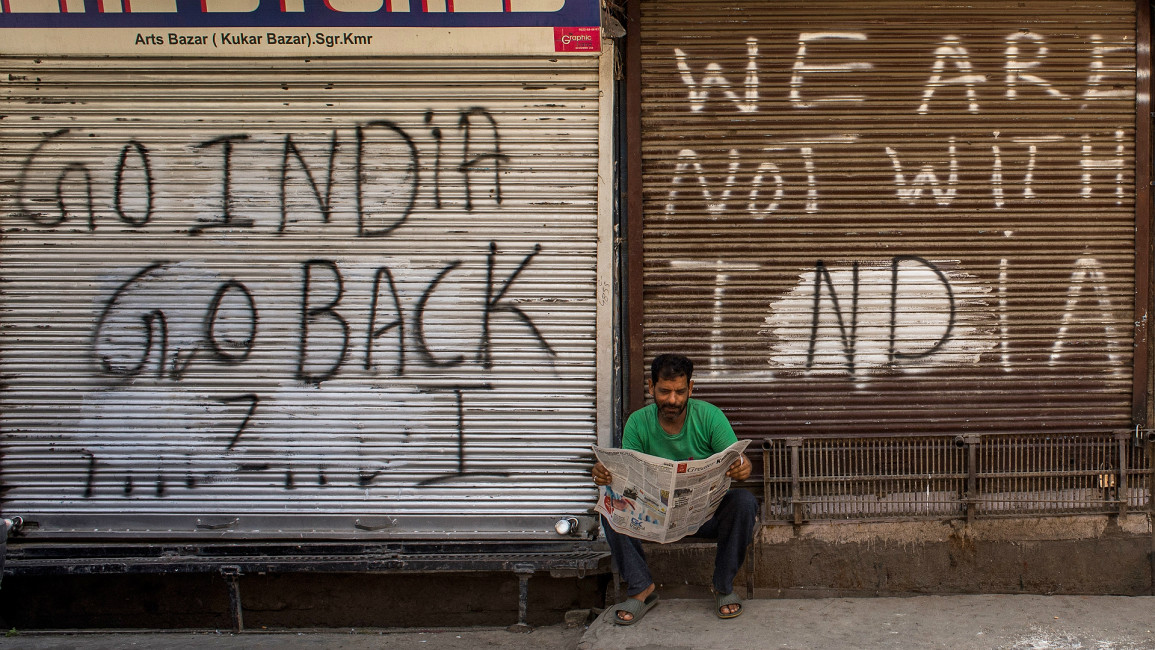Senior Indian diplomat calls for ‘Israeli model’ of occupation in Kashmir
India’s consul-general to the United States said Narendra Modi’s government will tackle tensions in Kashmir by using tactics modelled after illegal Israeli settlements in order to allow Kashmir's Hindu population to return to their land.
Speaking at a private event in New York City, Sandeep Chakravorty said: “It has happened in the Middle East. If the Israeli people can do it, we can also do it.”
The consul-general's remarks were met with applause from the crowd of Kashmiri Hindus, known as Pandits, when he said "Kashmiri culture is Hindu culture."
The Indian nationals gathered to discuss filmmaker Vivek Agnihorti’s film on the forced displacement of Kasmiri Hindus in the early 1990s.
Twitter Post
|
Critics say the Modi regime is attempting to use the burden of Hindus ousted from Kashmir to justify its occupation of the region disputed with Pakistan.
“I believe the security situation will improve, it will allow the refugees to go back, and in your lifetime, you will be able to go back … and you will be able to find security, because we already have a model in the world,” said Charavorty referring to the Israeli occupation of Palestinian land.
This is not new rhetoric for the right-wing Indian government, who has repeatedly been hostile to muslim communities in India.
Controversy erupted at an Indian university earlier this month when students opposed the appointment of a teacher to the Sanskrit department allegedly because he was Muslim, Indian media outlet The Hindu reported.
Kashmir, which has a large muslim population, has been on a knife-edge since New Delhi revoked the region’s semi-autonomous status in August, imposing a lockdown, blacking out communications, and detaining thousands.
Read more: "The only way we can resist: Cricket, politics and identity in Kashmir."
The region is claimed in its entirety by both India and Pakistan, who have fought two major and one minor war over it. It has been subject to a violent militancy since 1989, which the Indian government has said is backed by Pakistan.
New Delhi’s move to revoke Kashmir’s constitutionally granted semi-autonomous status was met with widespread protests across the region and in Pakistan. Even though some communications have been restored, around half of mobile phones remain cut off along with internet, and hundreds of local political leaders remain in detention – mostly without charge.
Kashmiris are engaging in a movement of civil disobedience to protest the action, keeping schools and public services closed, and halting Indian efforts to rekindle life in the valley.
Follow us on Twitter and Instagram to stay connected



